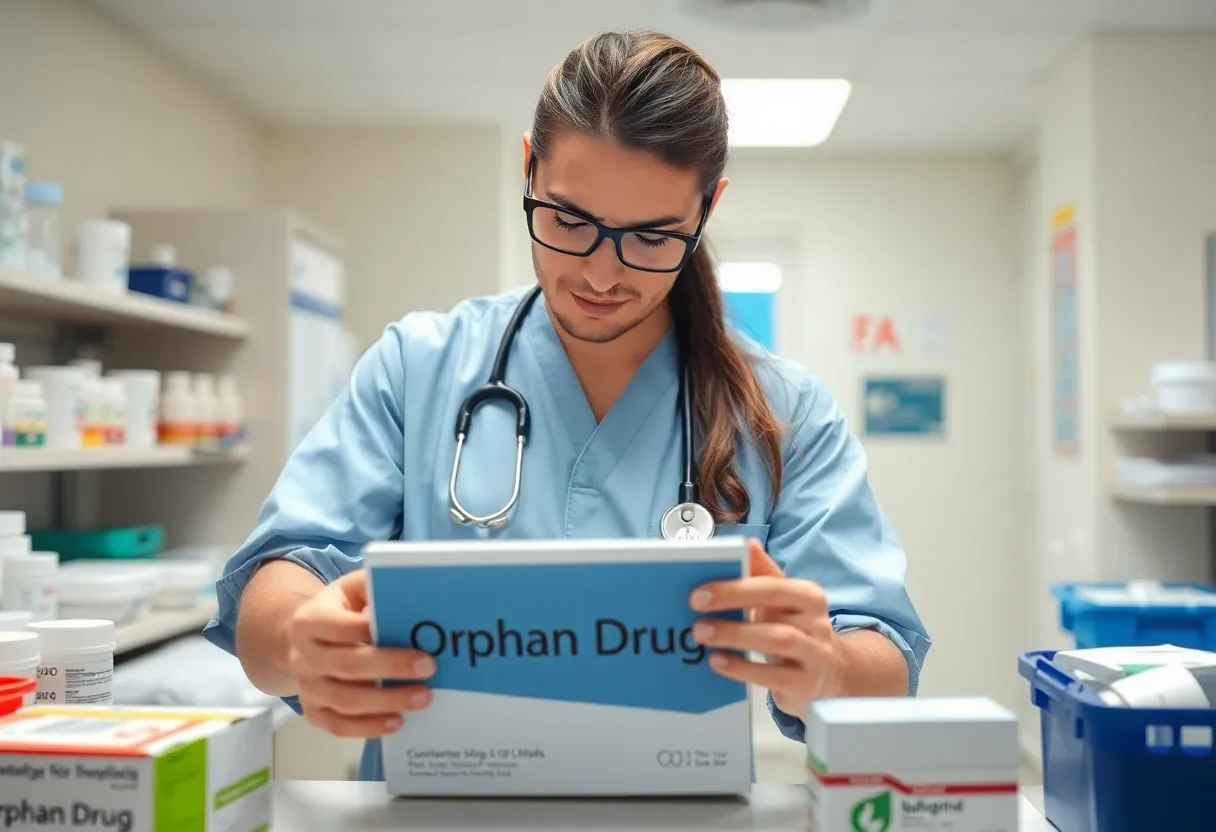News Summary
The Indian government has introduced a new policy to expedite the delivery of life-saving orphan drugs, essential for patients with rare diseases. By waiving previous testing protocols, the Central Drugs Standard Control Organisation has streamlined the import process, allowing quicker access to these vital medicines. With this change, patients can expect a more efficient system, ensuring timely delivery and better availability of treatments for conditions that affect limited populations, representing a significant advancement in public health regulations.
India Takes Bold Step to Speed Up Orphan Drug Deliveries
Great news for patients dealing with rare diseases! The government has rolled out a new policy aimed at speeding up the delivery of life-saving orphan drugs. This is particularly essential for those who rely on medications for conditions that affect a limited number of people—the so-called orphan drugs. The change simplifies the entire process by waiving the previously mandatory port sampling and testing procedures, which often led to frustrating delays.
Fast-Tracking the Process
So, what does this updated policy mean for the importation of these critical treatments? For starters, the process has been made much more efficient. The Central Drugs Standard Control Organisation (CDSCO) has issued new guidelines for port officers and state drug regulators. Under the new plan, orphan drug consignments can now be cleared right away based on a legal undertaking from the importer. This undertaking must indicate that the necessary drug samples will be sent to a designated laboratory, with test results expected within just 15 days.
Previously, testing for orphan drugs often caused significant delays. These medications are often imported in small quantities and are targeted towards conditions that affect fewer than 500,000 people. The specialized testing required for these drugs involves equipment and reference standards that aren’t always available at port laboratories, causing further hold-ups in getting these essential treatments to those in need.
Balancing Safety and Access
This new policy strikes an important balance between ensuring the safety of drugs and improving access to necessary therapies. While the speed of delivery has increased, regulatory oversight remains intact. If any issues are found during testing, the government retains the power to recall any batch of drugs. The actions taken are a direct response to feedback received from importers and patient advocacy groups that have long been pushing for a more streamlined process.
Boosting Accessibility
Patient advocacy groups have welcomed this decision, recognizing its potential to significantly improve access to treatments for rare diseases. The immediate release of orphan drug shipments based on the importers’ legal undertaking is expected to hasten the availability of these critical drugs—something that has been a long time coming. Laboratory testing for these orphan drugs is now being prioritized, addressing historical slowdowns that have plagued access to essential medications.
A Broader Vision for Public Health
This policy adjustment aligns with a larger effort to enhance regulatory flexibility and ultimately improve public health in the country. By reducing administrative delays and enhancing coordination among importers, regulators, and laboratories, the aim is to pave the way for quicker access to life-saving drugs.
Future Considerations
Despite this wonderful progress, challenges remain. The country still lacks a formal definition and comprehensive data on the prevalence of rare diseases, complicating drug development. The National Policy for Rare Diseases (NPRD), implemented in 2021, has already taken steps to address some of these gaps, but the hurdles related to affordability, research costs, and limited patient populations continue to pose significant barriers in orphan drug development.
Nevertheless, the CDSCO is focused on improving the accessibility of orphan drugs through this new regulatory approach. With the latest changes, patients with rare diseases can now look forward to timelier access to the medications they desperately need. It’s a major step forward, and one that could truly make a difference in countless lives.
Deeper Dive: News & Info About This Topic
HERE Resources
Additional Resources
- Chem in Digest
- Wikipedia: Orphan Drug
- The Hindu
- Google Search: Orphan Drugs
- India Med Today
- Google News: Orphan Drugs
- Indian Express
- Encyclopedia Britannica: Rare Diseases
Author: STAFF HERE NOVI WRITER
The NOVI STAFF WRITER represents the experienced team at HERENovi.com, your go-to source for actionable local news and information in Novi, Oakland County, and beyond. Specializing in "news you can use," we cover essential topics like product reviews for personal and business needs, local business directories, politics, real estate trends, neighborhood insights, and state news affecting the area—with deep expertise drawn from years of dedicated reporting and strong community input, including local press releases and business updates. We deliver top reporting on high-value events such as Motor City Comic Con, Michigan State Fair, and Novi Home and Garden Show. Our coverage extends to key organizations like the Novi Chamber of Commerce and Novi Community Foundation, plus leading businesses in automotive, technology, and manufacturing that power the local economy such as Gentherm, Stoneridge, and Daifuku North America. As part of the broader HERE network, including HEREDetroitMI.com, HEREGrandRapids.com, HERENorthville.com, and HEREPlymouth.com, we provide comprehensive, credible insights into Michigan's dynamic landscape.






